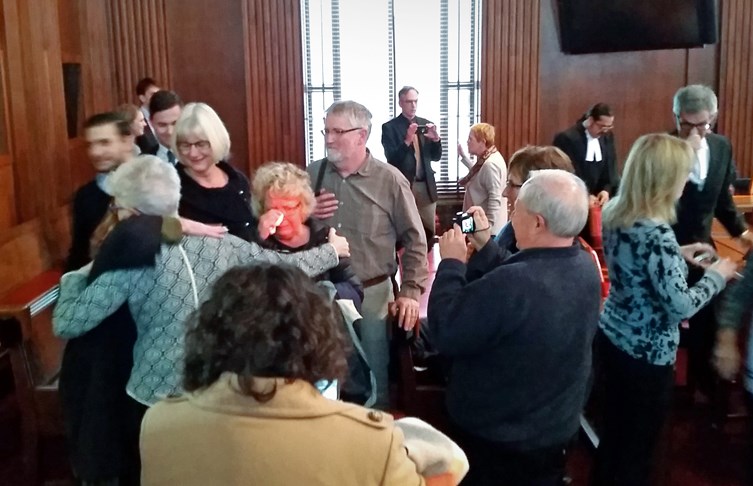For Susan Lambert, a longtime union activist with deep roots in the Burnaby school district, there is no overstating the significance of last Friday’s Supreme Court ruling in favour of the B.C. Teachers Federation.
It reestablished her faith in the rule of law, she said, and in Canada as a just and fair society.
“It’s that significant a decision for the teachers of British Columbia, but not just for the teachers of British Columbia, for anybody who works in a democracy that expects fair play.”
Lambert, president of the BCTF from 2010 to 2013, was a teacher-librarian in Burnaby in 2002 when the Gordon Campbell government passed legislation to strip teachers of their right to bargain class size, class composition and ratios for specialist teachers like teacher-librarians.
“It felt absolutely wrong in a democracy,” Lambert said of that day. “It felt very much like we were sliding into some kind of dictatorship. I know that sounds like a bit of hyperbole, but, in fact, it felt that way. It didn’t seem to me, and to all of us, that in a democracy such an act could happen.”
Teachers have been pushing for smaller class sizes, limits on the number of special needs students per class and more specialist teachers since before the BCTF became the bargaining agent for all public school teachers across the province in 1994, Lambert explained.
Negotiating one-on-one with the school board, the Burnaby Teachers’ Association consistently traded salary points for smaller classes, she said.
“Burnaby was one of the very first locals to establish what we called the unilateral working and learning conditions contract,” said Lambert, who started in the Burnaby district in 1989 and served as BTA vice-president from 2002 to 2004.
Getting some of those provisions into the first contracts negotiated between the province and the teachers federation was a slugfest, according to Lambert.
“It wasn’t anywhere near the ideal that we wanted,” she said, “but it was steps in that direction, and each and every clause was negotiated in like what a negotiation is – it was giving up something in order to get it.”
So having those provisions gutted in one fell swoop hit teachers hard, she said.
“When that legislation came down, people wept.”
Fifteen years later, there were more tears last Friday.
Lambert was in Ottawa with four other past BCTF presidents and current president Glen Hansman.
They were at the Supreme Court as silent witnesses as the case wrapped up, Lambert said, not expecting a final ruling for another six months to a year.
When the court made a rare decision from the bench, the teachers were jubilant.
“On the one hand it was overwhelming, but, on the other hand, there couldn’t be a different ruling,” Lambert said. “If there was a different ruling, if we had lost at the Supreme Court, I think we could only interpret such a loss as a staggering blow to democracy itself.”



